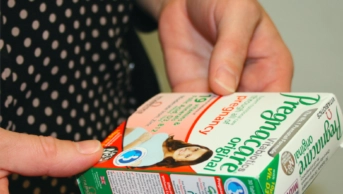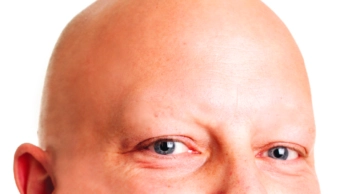This content was published in 2012. We do not recommend that you take any clinical decisions based on this information without first ensuring you have checked the latest guidance.

A. Genital herpes is caused by the herpes simplex virus, which can either be type I (commonly associated with cold sores) or type II (known as the genital strain). In the UK currently, genital lesions are equally likely to be caused by either type.
It appears that many infections are subclinical when the virus is first acquired and approximately 80 per cent of seropositive people are unaware that they have the infection. Initial infection may be either primary (ie, in someone who does not have pre-existing antibodies to either type I or II strains) or non-primary (where the individual has antibodies to the type other than that which they are being infected with). Already having one of the two types modifies the disease course, generally making it less severe.
Where patients have symptoms, these include:
- Painful lesions on or around the genital area, which tend to erupt in crops
- Painful or difficult urination (dysuria)
- Vaginal or urethral discharge
The genital soreness can sometimes prevent individuals from walking normally, and patients can experience urinary retention. Patients can also have systemic symptoms, such as fever, malaise and myalgia, particularly in an initial attack. Meningitis can develop in extreme cases.
Diagnosis
Diagnosis is clinical. The classic picture is blisters that develop into small shallow painful ulcers, sometimes accompanied by swollen lymph glands (lymphadenopathy) in the groin. Occasionally syphilis can mimic this picture and it is vital to exclude this with blood tests. Other causes of genital blistering and ulceration include Behçet’s syndrome, a rare autoimmune disorder.
If the blisters or ulcers are wet, a swab can be taken to confirm the diagnosis. Although results can take time, treatment should not be delayed.
Serology can have some use in forensic diagnosis (eg, to identify the perpetrator of a sexual assault) or in pregnancy (to identify women who are having a primary attack; see later) but is generally of little importance in most cases because many people in the UK have been in contact with herpes simplex in one way or another. It can differentiate between type I and II infection.
Recurrence
The initial attack normally lasts for 10 to 14 days. After this episode, the virus lies dormant in the local sensory ganglia but periodically activates with or without symptoms — a condition known as asymptomatic shedding. Recurrent attacks are often milder than the initial episode.
Factors that are commonly implicated in triggering recurrences include hormonal changes and stress, but these have not been scientifically proven. There is, however, an increased risk of recurrence if a patient is immunocompromised. In addition, people with HIV are more likely to shed the virus asymptomatically than those who do not have HIV. The presence of herpetic sores also increases the transmission of HIV.
Treatment
The cost of treatment varies from around £4 for a course of aciclovir to over £100 for famciclovir, so some prescribers will have formulary restrictions.
Options for treating an initial attack are a five-day course of:
- Aciclovir 200mg five times daily
- Aciclovir 400mg tds
- Valaciclovir 500mg bd
- Famciclovir 250mg tds
All these regimens reduce the length and severity of the episode but do not affect the risk of recurrence or asymptomatic shedding. They should be started within five days of the onset of symptoms or when new lesions are still forming.
If the patient returns after the course of treatment and has new lesions still forming, it may be necessary to continue the treatment for a further five days.
Saline baths (one teaspoon of salt per pint of water), analgesia (eg, paracetamol) and topical anaesthetics, such as lidocaine 5 per cent ointment (used with caution to avoid sensitisation), may help alleviate symptoms.
In severe cases, patients may need to be admitted to hospital. Some require suprapubic catheterisation.
Self management
Most recurrent episodes of genital herpes are minor and can be treated with saline baths, analgesia and reassurance.
You might also be interested in…
How to select the right mouthwash

Thalassaemia and iron supplements
